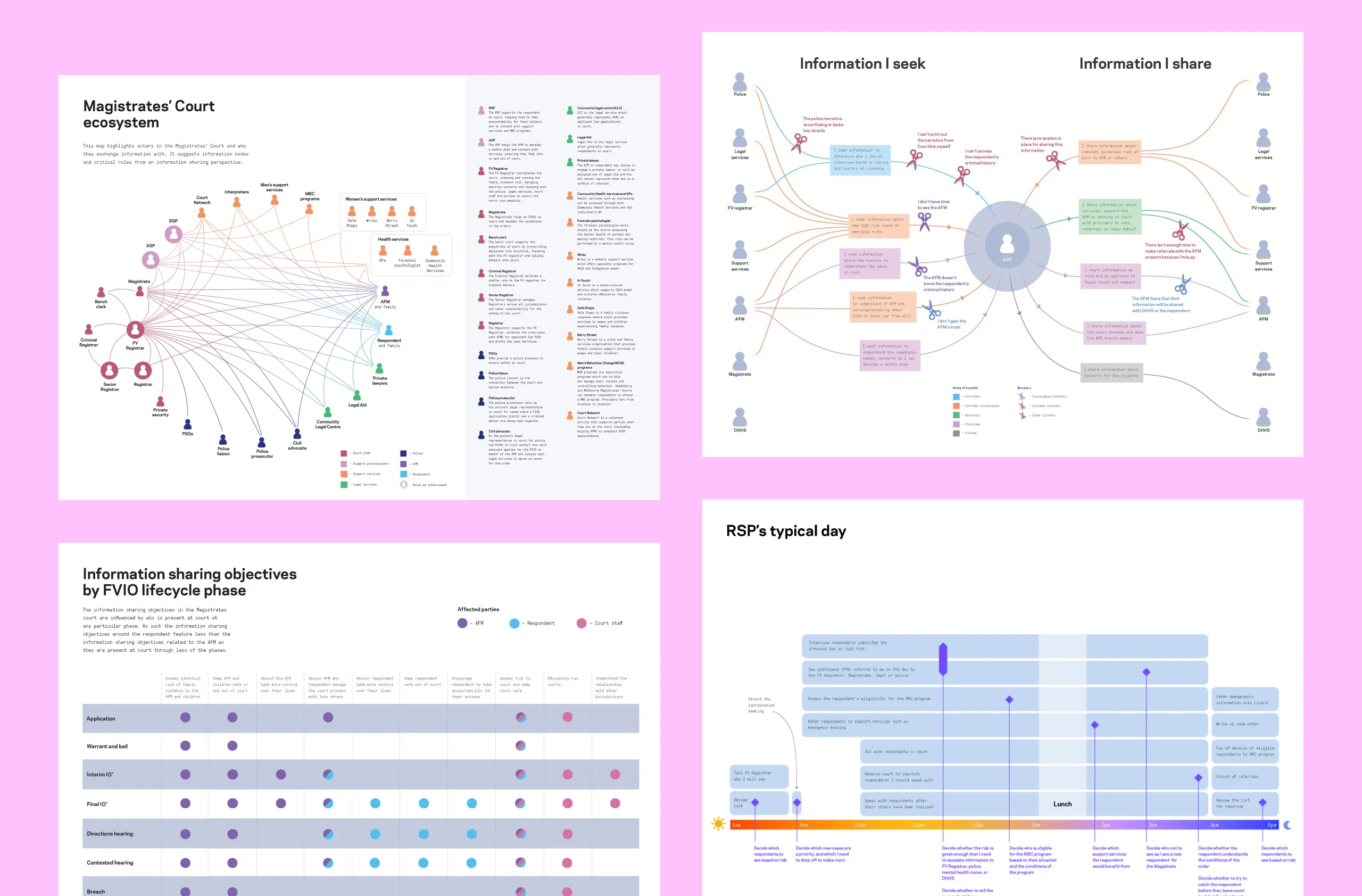Understanding and improving information sharing in Victoria’s Family Courts.
In partnership with Victoria's Department of Premier and Cabinet

Yesterday
Information sharing in our courts can be complex.
In a family violence context, this results in victim survivors needing to retell their story over and over again, increasing the risk of re-traumatisation.
Improving information sharing was one of the key recommendations of the Royal Commission into Family Violence. We were engaged by the Victorian Behavioural Insights Unit to address this challenge by better understanding the gaps, barriers and opportunities within our Magistrates’ Courts.

Today
We conducted ethnographic research in Melbourne, Ballarat, Heidelberg and Broadmeadows Magistrates’ Courts. In each court, we conducted contextual interviews with staff including the Family Violence Registrar, Applicant Support Practitioners and Respondent Support Practitioners.
We identified 23 main actors involved in a typical family violence matter. Each of these actors both sought and shared information—often highly technical, mostly through conversation. Each court location functioned very differently due to the variation of the volume and type of family violence matters.
Initially tasked with capturing and sharing raw research data, we soon found that the complexity of the situation would mean the data would be impenetrable. We used information design to distil a large volume of complex interactions down to insights that could be easily consumed and acted upon.

Tomorrow
We translated a complex system of critical information sharing into actionable recommendations and visual aids.
This deeper understanding the Magistrates’ Courts ecosystem of information sharing is crucial to improving the experience of families moving through the court system.
Our insights and recommended next steps formed part of a report to inform future policy decisions to improve the experience in Victoria’s Magistrates’ Courts.

We set out to capture the day-to-day reality of how the courts functioned in order to assist policy makers in decision making. The process of a Family Violence Intervention Order is not linear and it was important to understand the system and objects to make robust recommendations that would result in positive systemic change.
Adam Morris, Chief Design Officer, Today


Get in touch
Want to know more about digital transformation? Chat to Dewani today.
Dewani Shebubakar
Head of Practice
Next Case Study
Magistrate's Court of Victoria:
A new way to access online assistance during family violence
